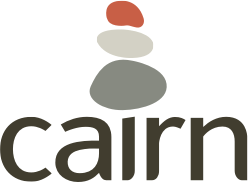Written by Cairn Guidance, a Dove Self-Esteem Project Partner
In recent weeks, our students were playing on playgrounds or recreation fields, participating in organized sports, visiting with friends and relatives, hanging out at a favorite spot, going to the movies, hugging those who are special to them, and going to their school buildings, to name a few. In the blink of an eye, their worlds changed dramatically. Unexpectedly, we are faced with a pandemic.
In a time of crisis, schools have always been there. Suddenly schools are not the physical safe haven they have been through many of the incidents that have occurred over time. Students could gather with their friends; talk to crisis counselors, teachers or school counselors; and go to class. In other words, schools provided some normalcy in their lives.
Fast forward to recent weeks or specifically, the month of March. Some students left on a Friday for what they thought would be a fun-filled spring break. Others were anticipating their April spring break. Abruptly, they all found their schools were going to be closed for at least two weeks, instead of the one usually reserved for spring break. Soon, schools across the nation were to be closed through the middle of April and schools were preparing to teach online or virtually. Educators who are accustomed to primarily face-to-face instruction and interacting with students in their physical classrooms, found themselves receiving a “crash” course on distance learning. Engaging students in the physical classroom is different from engaging students virtually.
Many educators are also parents. They too are working with their own children on keeping them on target with their studies and virtual instruction. There’s been no real time for adjustment. Educators have always been flexible and able to work within the constraints provided. However, this has not included working from home and dealing with the angst that has captured a nation, as the coronavirus infects more people and costs lives. As a precaution or perhaps forethought, some states have indicated instruction will be virtual for the remainder of the semester.
It is necessary to acknowledge the fears and concerns of students, while providing effective and engaging instruction. Educators must take care of themselves, as well, to include their families. We have partnered with Dove, who’s been helping parents, mentors, teachers, and youth leaders deliver self-esteem education since 2004 reaching reached more than 60 million young people through the Dove Self-Esteem Project.
The Dove Self-Esteem Project focuses on the health of our students, especially as it relates to self-esteem and body confidence. Some students may feel isolated or not included in the many discussions that take place on social media, thereby, experiencing a negative impact on their self-confidence. We also know students can sometimes say unkind things about others via social media. This also may be a time when children aren’t monitored on electronic devices. It is necessary to continue to focus on the health of our students, their self-esteem, and how they feel about themselves.
The Dove Self-Esteem Project is here to help educators support parents and caregivers to young people with academically validated curriculum to improve the self-esteem in young people. It is also here to support educators as they continue to focus on the whole child via virtual instruction. The Dove Self-Esteem Project in partnership with Cairn Guidance, consists of a cadre of trainers who are health and physical educators, school counselors, school social workers, nurses, wellness professionals and university professors. We are working on ways to utilize their expertise in support of the efforts of educators. We are tapping into other resources to deliver creative and engaging skills-based tools that educators can use or suggest to parents. We are here to support you.
Please visit the resources located at the following links:
Single Lesson Confident Me Resources– The 45- to 60-minute Dove Confident Me single lesson workshop addresses key topics including media influence, peer pressure, and strategies for promoting body image and self-esteem. Students learn through class discussion, small-group activities, videos, and activity worksheets.
Five Lesson Confident Me Resources– Over five 45-60-minute lessons, through class discussions, small-group activities, engaging videos, and activity worksheets, the program covers:
• Unrealistic appearance ideals
• The impact of social media, celebrity culture, and advertising
• How to reduce appearance-focused conversations and comparisons
• Body activism and positive behavior change
Training videos for teachers, educator and parents
For Parents & Mentors (additional topics at this site below)
Uniquely Me- This guide consists of a series of articles covering key topics that affect self-esteem, and it provides activities to boost body confidence in your child.
Family, Friends and Relationships– Articles and activities to help parents communicate with children & offer support with friendship problems, sibling relationships, and body image
Respecting and Looking After Yourself – Articles, activities, and relationship advice for parents to help their teenage child overcome low self-esteem and build body confidence during the stages of puberty
Teasing & Bullying– Information on bullying and different types of bullying, such as bullying in school and cyberbullying, including why bullies bully and how to help stop bullying
Media & Celebrities– Advice for parents on how the media, advertising, and celebrity role models influence young people’s body image and self-confidence
Talking About Appearance – Discover how appearance affects self-esteem, and help your teenager deal with the effects of social media, peer pressure, media ideals, fat talk, and more

Leave a Reply